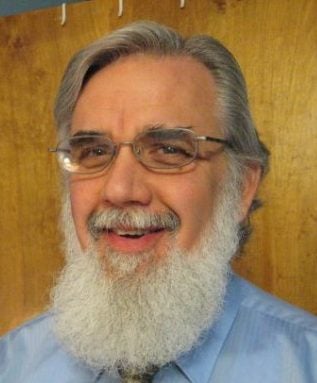Humble: Hope trumps sorrow
Published 9:23 am Friday, July 5, 2019

- Steve Humble
About 10 p.m. July 4, 2019, it will have been 23 years since my wife and I were called to the hospital in Berea because our son Elijah had a heart attack. We arrived only to learn Elijah had died at the home of friends where he and his wife Jenny had gone to celebrate the 4th.
Recently, during a family camp with friends from around the country, one of the speakers urged us to declare fervently concerning our children, “My child shall not die but live.”
This prayer is good, one based on Psalm 118:17 — a good prayer if it is a prayer the Holy Spirit leads us to pray.
However, it seems like 23 years too late to pray that prayer for our son. Did we fail to pray hard enough? Often enough? Fervently enough? Authoritatively enough? Could we have done something to prevent Elijah’s unexpected death?
One friend is reported to have said to another of our friends, shortly after Elijah’s death, if we had prayed more consistently with faith, Elijah would not have died. Is that so?
Another friend later apologized for not going to the funeral home to pray for Elijah to be brought back to life. Would he have been?
Those are questions I cannot answer, and speaking bluntly, I refuse to ask.
Our daughters and a dozen or so friends came to be with us at the hospital that night, and before we left to go home in the wee hours of the morning, we gathered in a circle right there in the ER to pray.
As others were offering their prayers, the following thoughts became clear to my heart and mind.
“This is no time to ask, ‘Why?’ It is time to trust God and entrust Elijah to God.”
I chose to do so that night. In the course of the next few days, as I grieved deeply, another thought was added to those.
“Take a posture of worship.”
To the best of my ability, I did.
I soon realized that these thoughts were God’s direction to me — feelings that had come by the Holy Spirit from “the God and Father of our Lord Jesus Christ, the Father of mercies and God of all comfort …” (2 Cor. 1:3).
Did choosing to follow these instructions banish the pain and grief?
No.
Was it a choice that could be made once for all time?
No.
Choosing to trust God, to entrust Elijah to God, and to take a posture of worship has, however, made a massive difference in the journey through “the valley of the shadow of death” (Ps. 23:4).
For one thing, it spared me from the torment of harassing questions such as “What did I do wrong?”
I had done many things wrong in my life, but life spared me from blaming myself or finding someone else to blame for this tragedy.
Choosing this path has enabled me to offer Elijah’s death, as well as his short life, as a sacrifice to God for his good purposes, as the apostle Paul wrote: “ … we know that for those who love Him, for those called in agreement with His purpose, God makes all things work together for good” (Ro. 8:28 MLB).
Elijah’s death has produced in me great empathy for others who have suffered such loss and, because of it, I have been enabled to offer a degree of comfort to some of them.
Oh yes, there was an occasion for about a month and a half after Elijah died when I did cry out, “God, why my son?”
To my surprise, God answered, firmly and lovingly, “Why not your son?”
Yes, why should I be spared from the pain that so many people experience in a broken, messed up world? Am I alone not called to the ministry of helping to fill up “that which is lacking in Christ’s afflictions” for the sake of others (Col. 1:24-25)?
Our great “tragedy” has also made triumph possible in that it has drawn me to trust God more fully and has motivated me to do everything I can to reach people of Elijah’s generation and those even younger with the hope and purpose that is the reality of the good news about King Jesus.
One more thing, the good news about Jesus has given me solid grounds to declare, “My child shall not die, but live!”
After all, Jesus told Martha, after her brother had already died, “I am the resurrection and the life. Whoever believes in me, “though he die, yet shall he live, and everyone who lives and believes in me shall never die. Do you believe this?”
I can answer, “Yes, Lord Jesus, I do believe. I believe because you died, yet you live!”
But we do not want you to be uninformed, brothers and sisters, about those who have died, so that you may not grieve as others do who have no hope. (1 Th. 4:13 NRSV)



